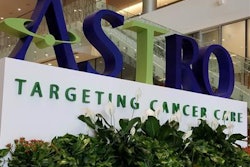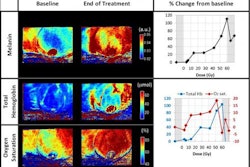A radiation therapy model that personalizes treatment based on patient genomics has been developed by a team from the Moffitt Cancer Center and Research Institute in Tampa, FL, according to a study published August 12 in EBioMedicine.
The approach, called genomically adjusted radiation dose (GARD), addresses the lack of personalization in radiation therapy, said contributing author Dr. Javier Torres-Roca in a statement released August 22 by Moffitt.
"GARD is the first opportunity for a genomically driven personalized approach in radiation oncology, and is a research priority for the field," he said. "Our research has found that GARD values are lower for those tumors that are resistant to radiation and higher for those tumors that are sensitive to radiation treatment."
Torres-Roca and colleagues conducted a study using the GARD model that included two groups of triple-negative breast cancer patients treated with radiation therapy: 58 patients from four Dutch cancer centers and one French center, and 55 from Moffitt.
The study found that GARD values were associated with breast cancer local recurrence risk, and the range for optimal radiation dose in triple-negative breast cancer was 30 to 76 Gy. The current standard is to deliver 60 Gy to all patients, which could result in overdosing a significant number, lead author Dr. Kamran Ahmed said in the Moffitt statement.
"Our analyses provide the first proposed range for optimal radiotherapy dose at an individual patient level in triple-negative breast cancer and proposes a significant number of patients can be treated with lower doses of radiotherapy while still maintaining high levels of local control," he said.



















